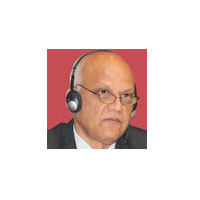  The Department of Telecom (DoT) has tried to come out clean in its reply to the Chief Vigilance Commission (CVC). The Telecom Secretary, Siddharth Behura has provided detailed explanation to the PMO as well as the CVC on two issues, the policy of first-cum-first-served adopted by DoT in granting licences to new players and the deals of Swan as well Unitech with foreign partners.
Explaining the logic behind granting licences on the controversial first-cum-first-served policy, the Secretary said that Trai had first identified the policy in line with the National Telecom Policy. The Secretary stated that the policy was introduced considering the recommendations of the Trai. Calling Trai “an expert regulatory body”, the letter said that Trai’s recommendations were first accepted in 2003.
The Secretary said that the regulator did not favour auctioning mode in its subsequent recommendations and adhered to one time charge in addition to annual recurring charges for the licence. The one-time charge was kept intake to ensure level-playing field in future for new entrants, says the Secretary’s letter.
“Thus, the basis first cum first served allotment and continuation of fixed one time charge had its genesis in the Trai recommendation in the interest of the twin government objective of rapid telecom penetration at reasonable costs,” said the letter.
On the Swan as well a Unitech deal, the Secretary pointed out that the then UAS licence had no provision for lock-in period and was in line with deals carried on over years. The Secretary said that even the Finance Ministry acknowledges the fact that dilution of equity in way of buy out from foreign investors results in direct FDI. Behura said that no promoter’s equity has been sold in both the deals.
The Secretary was replying on CVC’s demand for an explanation from DoT on the controversial issues mentioned above. The CVC had in fact alleged that certain DoT officials may also be involved in the decision-making process to ensure gains to private parties. |